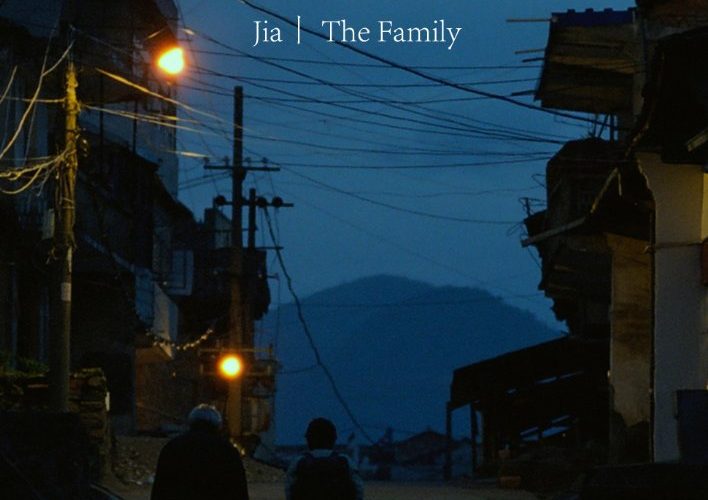Long runtimes have become a bit of a trend on the festival circuit in recent years, with titles like Happy Hour, A Lullaby to the Sorrowful Mystery, and OJ: Made in America breezing past the five-hour mark. Shumin Liu’s The Family, which bowed at Venice and is now at Slamdance, is yet another lengthy film making the rounds at a comparatively shorter 282 minutes. Several years in the making, Liu shot his debut feature on 35mm and handled cinematography and editing duties, on top of writing and directing. It’s the kind of unwieldy ambition one might expect from a first-time filmmaker, but Liu’s film is as audacious as it is frustrating, with an overindulgent runtime and off-putting choices.

The film follows septuagenarian couple Deng (Shoufang Deng) and Liu (Lijie Liu), who live in a modest apartment with their daughter Liqin (Huang Liqin) and her teenage son. Liqin, an English teacher, is divorced and waiting to move into her new apartment once it’s constructed, but Deng and Liu are unable to come up with the money to decorate Liqin’s new place. Liu, helmer, lays out the story early on with a clunky block of exposition from Liu, character, who explains everything to his already knowing wife. That sort of transparent dialogue luckily doesn’t pop up again, but the scene serves as a hint of the awkwardly laid-out drama to come.
With not enough funds to support Liqin’s costly apartment, Deng and Liu decide to travel across the country to meet their two other children and ask for help. Their first stop is the city of Fuzhou, where their second daughter, Xiaomin (Liu Xiaomin), lives with her husband and daughter. After a pleasant and underwhelming visit, they head over to Shanghai to visit their son, Xujun (Liu Xujun), and his wife, who have a hard time staying afloat financially. Deng and Liu’s time at Xujun’s place causes some tensions and past resentments to bubble to the surface, but Liu has little interest in melodrama. Instead, his film shows the ever-diminishing roles these two central characters have in the lives of their children and contemporary China. No one takes time off of work during their stay (largely because they can’t afford to), and their presence feels more like a minor disruption to everyone’s routine. It’s a melancholy look at the inevitable rise of irrelevance that comes with aging, and how these parents carry on in the face of it.

When communicating themes, Liu’s greatest strength is visual. Also serving as cinematographer, he relies largely on striking, static compositions and lengthy takes. For interior scenes, Liu frames his two leads almost entirely through doors or hallways, a way to box them in; for exteriors, he uses long shots that make it hard to find his characters within the frame, letting the environment swallow them up. It echoes Tsai Ming-liang’s work, specifically his short films involving Lee Kang-sheng as a slow-moving monk, and Liu’s eye carries the film until he actively works against himself by employing less-effective visual and editing styles. Jump cuts, dissolves, and fades appear in a haphazard fashion, and elaborate pans or tracking shots occur at seemingly random points. There’s little rhyme or reason to discern here, and the quiet, contemplative nature of the subject matter makes it hard to believe this is Liu purposely trying to pull off some discomfiting techniques.
Even worse is his handling of the story itself, which leans hard on cheap dramatic reveals in its final hours. A key piece of information involving Deng and her husband pops up in the third hour for what looks like no reason other than bringing its themes of mortality to the forefront. And in a move that almost undoes everything that came before it, the final twenty minutes throw in a cruel twist that rivals the annoying capper for Lars von Trier’s Nymphomaniac. It’s an unearned left turn, one that feels more pointless because of the amount invested to get to that point. The Family isn’t a film without merit, but for everything it gets right, Liu finds a way to undercut his own work, and the 4.5-hour runtime only exacerbates those issues. It inspires a detached admiration for his efforts, and the hope that he’ll let someone else handle editing duties in the future.
The Family screened at the 2017 Slamdance Film Festival.

